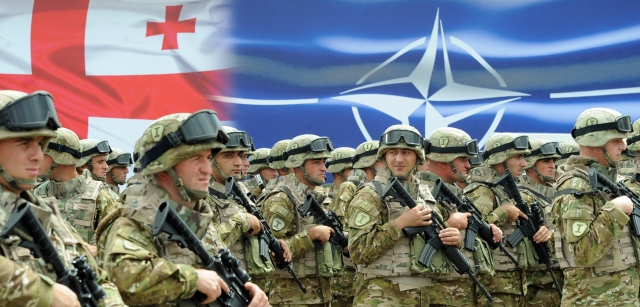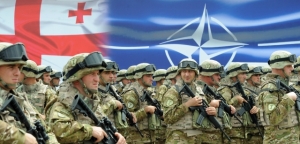Foreign Policy: NATO’s Endless Caucasian Courtship
Foreign Policy has published an article concerning Georgia’s NATO prospective and the country’s chances with their current security environment against a potential Russian invasion.
The analysis by FP’s associate scholar, Michael Cicire, starts by emphasizing that NATO inaugurated a new Joint Training and Evaluation Centre (JTEC) in Tbilisi in late August. The publication reads “Though a minor addition to the alliance’s vast constellation of European infrastructure, the new base is notable for being in a non-NATO state, making it a major symbol for Georgia, which has doggedly pursued NATO membership since the late 1990’s.”
According to the article, the new centre can only mean good news for Tbilisi – but it is at best, a consolation prize. “That’s because, despite promising to admit Georgia in 2008, NATO leaders have made it clear that it can’t expect to join any time soon. The problem is not that the country has been unable to meet the alliance’s high standards. Rather NATO refuses to clearly elaborate what Georgia can do – if anything – to win entry.”
In addition Cecire stated that NATO’s hesitation is an especially tough pill to swallow considering Tbilisi’s enthusiastic integration with the alliance saying “Not only have Georgian troops served in large numbers in Afghanistan (and continue to do so), but Tbilisi is the only non-member contributor to NATO’s new rapid response force. Georgia’s military, which has deployed alongside western soldiers in Kosovo, Iraq, and Central African Republic, is highly rated, battle-tested, and reportedly fields over 10,000 troops at NATO standards — better than many existing member states.”
The publication concludes “Georgia is also increasingly democratic, if prone to fits of intense political infighting. And Tbilisi balances its unwavering Euro-Atlantic aspirations with a policy of pragmatically engaging Russia on trade and cultural exchange, seeking to avoid the kind of acrimony that contributed to the two countries’ 2008 war.”
To read more about the analysis, click here:












